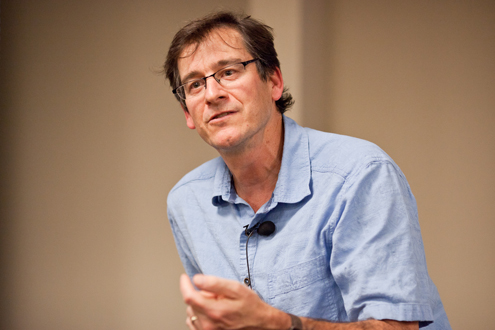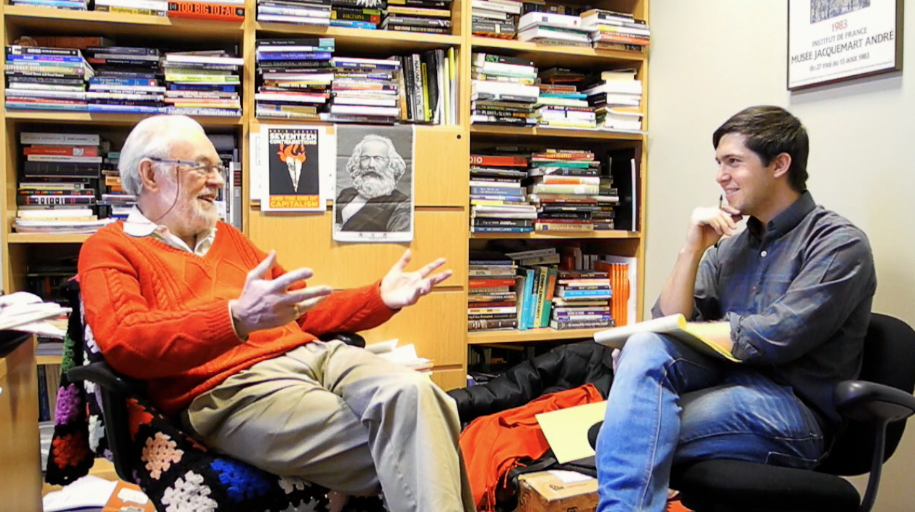Karl Polanyi Research Center for Global Social Studies and the Commission on Global Transformations and Marxian Anthropology – IUAES, in cooperation with the Working Group for Public Sociology ‘Helyzet’, Capitalism Nature Socialism, Focaal – Journal of Global and Historical Anthropology, and FocaalBlog, organized a conference on the 26-27 May, 2022, in Budapest, addressing the escalating crises of global capitalism.
Since 1989, processes of neoliberal globalization, financialization, the erosion of welfare states, and the decline of ‘the standard labor contract’, have produced deepening inequalities and hierarchies, long time hidden under the mantra of ‘freedom’ and ‘democracy’. Privatization, gentrification, dispossession, devaluation, and displacement have increased in a multitude of settings despite intermittent mass mobilizations, which were often seen as ‘middle class’. The undermining of democratic possibilities has reinforced the super-exploitation of diverse groups in many places. Globalization, technological speed up and the platformization of labor-markets are threatening ‘middle class’ jobs’ in North and South. Deepening exploitation of labor is increasingly intersected with aggressive rent taking by monopoly sections of capital and states. Issues of nationalism, racism, antisemitism, and xenophobia, sometimes interwoven with waves of migration, have resurfaced, in tandem with the resulting authoritarianism. Accelerating climate change is being addressed in pro-capitalist ways, likely leading to further inequalities, displacements, and challenges to survival. Global imperial rivalries are intensifying and generating new cold wars and ‘global wars’, increasingly of a purportedly ‘civilizational nature’, like the Ukrainian calamity that is playing itself out on the EU border.
The late Immanuel Wallerstein predicted that politics in this ‘decisive era of the world-system’ will be ever more volatile as inescapable choices must be made about democratic or authoritarian solutions. Most of our problems are well known and anticipated, but narrow ideas about ‘proven causation’ and ‘concluding evidence’ paralyze any decision making on behalf of established interests, while national publics are being fed lies and deceptions, both by the technocrats and the ‘authoritarians’ and right-wing populists. Crisis moments are steadily dealt with ‘unprepared’ and in fire-fighting mode. Left wing grassroots movements are specialized on small scale practical utopias but large-scale breakthroughs for the Left seem out of reach.
If this describes roughly where we are now, what can we expect next? Can we responsibly extrapolate and speculate? What sort of a global capitalism might we be inhabiting in thirty years from now? What can we discover as its likely core tendencies, elements, and relations? What modes of resistance are people experimenting with? What are the visions and opportunities to build a more equal and just society? Where is the new counter politics, where are the new counter movements?
Roundtable on War
Taras Fedirko (University of St Andrews) Militarized civil society and the economy of war in Ukraine
Volodymyr Arthiuk (University of Oxford) The expected war: scales of conflict around Ukraine from February 2014 to February 2022
Denys Gorbach (Sciences Po) Identitarian landscapes in Ukraine before and during the war
Volodymyr Ischenko (Free University Berlin) Madman’s war? Ideology, hegemony crisis, and the dynamics of depoliticization in Russians’ support for the invasion of Ukraine
– moderated by Don Kalb (University of Bergen)
Roundtable on Migration
Attila Melegh (Corvinus University/Polanyi Center) Migration turn and the crisis of capitalism.,
Noémi Katona (Centre for Social Science, Hungarian Academy of Sciences/Helyzet) The division of reproductive labor in global capitalism: the case of migrant care workers in Europe,
Béla Soltész (Eötvös Loránd University), “The wanted, the unwanted and the invisible. Interpreting distinctions and selectivity of Hungarian migration policy”
Nina Glick Schiller (Manchester University), Has Migration Studies Lost Its Subject? Migration Studies, Global Disorders, and Shared Precarities
– moderated by Diana Szántó (Artemisszio Foundation/Polanyi Center)
Roundtable on ‘Illiberal capitalism’ I
Luisa Steur (University of Amsterdam) Cuba Update
Marc Morell (University of Bergen) On transformative movements in neither authoritarian nor egalitarian but flawed paths. A Maltese illustration
Attila Antal (Eötvös Loránd University) Illiberalism as Emergency Governance
Gábor Scheiring (Bocconi University) The national-populist mutation of neoliberalism in East-Central Europe
– moderated by Attila Melegh (Corvinus University/Polanyi Center)
Roundtable on ‘Illiberal capitalism’ II
Florin Poenaru (University of Bucharest) Tanks, tankies and think-tanks. Anthropological vignettes from the Romanian garrison
Jeff Maskovsky (The City University of New York) Not Yet Fascist: The Journey from Neoliberalism to Corporate Authoritarianism of the United States
Ágnes Gagyi (University of Gothenburg) Bridge position and regime fixes: semi-peripheral contexts to “illiberalism” in Hungary
Bruno de Conti (University of Campinas) Bolsonaro: the economic agenda behind the smoke screen
– moderated by Dorottya Mendly (Corvinus University)
Roundtable on Our Futures
David Harvey (The City University of New York)
Michael Burawoy (UC Berkely)
Ida Susser (The City University of New York)
Don Kalb (University of Bergen)
– moderated by Mary Taylor (The City University of New York)
Cite as: Focaalblog. 2022. “New Times? Confronting the Escalating Crises of Global Capitalism.” Focaalblog, 5 July. https://www.focaalblog.com/2022/07/05/don-kalb-new-times-confronting-the-escalating-crises-of-global-capitalism/

